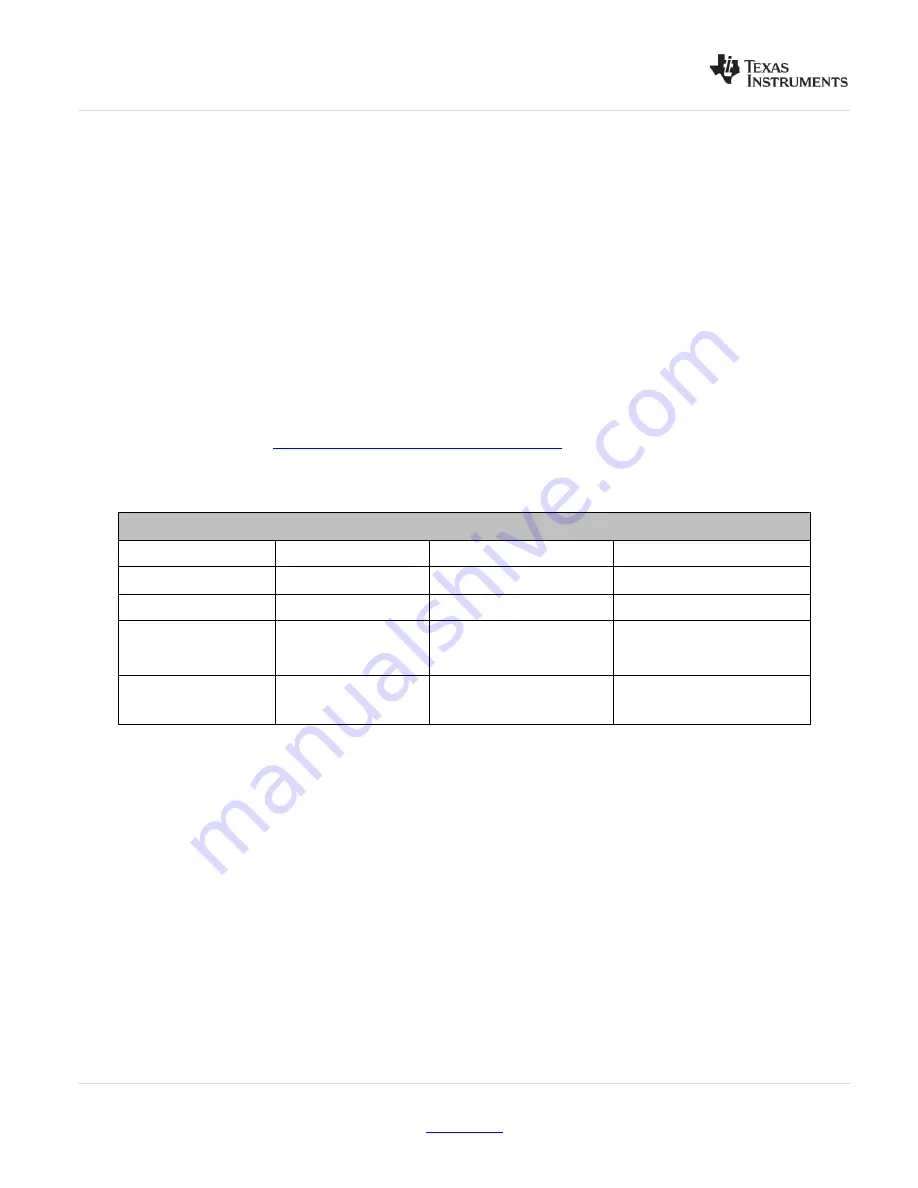
12
SNAU076B
LMK04800 Family
Revised - August 2014
Copyright © 2014, Texas Instruments Incorporated
PLL Loop Filters and Loop Parameters
In jitter cleaning applications that use a cascaded or dual PLL architecture, the first PLL’s purpose is to
substitute the phase noise of a low-noise oscillator (VCXO or crystal resonator) for the phase noise of a
“dirty” reference clock. The first PLL is typically configured with a narrow loop bandwidth in order to
minimize the impact of the reference clock phase noise. The reference clock consequently serves only as a
frequency reference rather than a phase reference.
The loop filters on the LMK048xx evaluation board are setup using the approach above. The loop filter
for PLL1 has been configured for a narrow loop bandwidth (< 100 Hz), while the loop filter of PLL2 has
been configured for a wide loop bandwidth (> 100 kHz). The specific loop bandwidth values depend on
the phase noise performance of the oscillator mounted on the board. The following tables contain the
parameters for PLL1 and PLL2 for each oscillator option.
Texas Instruments Incorporated’s Clock Design Tool can be used to optimize PLL phase noise/jitter for
given specifications. See:
http://www.ti.com/tool/clockdesigntool/
.
PLL 1 Loop Filter
Table 4: PLL1 Loop Filter Parameters for Crystek 122.88 MHz VCXO
122.88 MHz VCXO PLL
Phase Margin
49
˚
Kφ (Charge Pump)
100 uA
Loop Bandwidth
12 Hz
Phase Detector Freq
1.024 MHz
VCO Gain
2.5 kHz/Volt
Reference Clock
Frequency
122.88 MHz
Output Frequency
122.88 MHz (To PLL 2)
Loop Filter
Components
C1_A1 = 100 nF
C2_A1 = 680 nF
R2_A1 = 39
kΩ
Note:
PLL Loop Bandwidth is a function of K
φ
, Kvco, N as well as loop components. Changing K
φ
and
N will change the loop bandwidth.



























